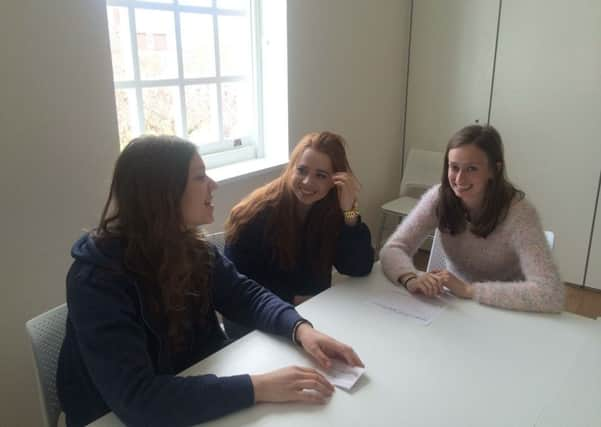Trip to Museum of the Mind puts focus on mental health


Bethlem Museum of the Mind is situated in Beckenham within the grounds of the Bethlem Royal Hospital which is part of the South London and Maudsley NHS Foundation Trust, one of the foremost treatment centres for mental health in the country. It is on the shortlist of museums and galleries in the running for the Art Fund Prize for Museum of the Year.
The students learnt about the history of the hospital, which first opened in Bishopsgate, London in 1247, how the word ‘bedlam’ originated and how patients’ treatment has changed over the centuries from what is now regarded as barbaric to the modern practices of a 21st century psychiatric unit. The museum contains artefacts including ECT machines and straitjackets, as well as a valuable collection of artwork from patients including famous artists such as Richard Dadd.
Advertisement
Hide AdAdvertisement
Hide AdStudent Julie-Ann Buxton said: “We discovered how hard it is for consultants to make a judgment on a person’s health. We were shown a video of a young girl who wanted to take weekend leave from the hospital and we had to make the final judgement as to whether she was allowed to go home or not. The majority of us decided that she should remain. However, we were then told more information about the risks of her leaving and the risks of her staying at hospital. For example, she might lose trust in the hospital staff which could affect her later if she were to relapse. Many of us changed our minds once we had discussed these factors, showing us just how hard mental health decisions are.
“At the museum we saw artwork that was created by patients at the hospital during their stay and some pieces after they had left, showing their recovery. We all took a particular interest in ‘The Maze’ by William Kurelek which contained scenes from his past and present life forming a maze, with a white rat (representing the artist) trapped in the centre and his view of the outside world.”
Penny Hart, Farlington’s Head of Psychology, said, “The interactive workshop was particularly useful as it highlighted many of the ethical and practical issues that arise within modern psychiatry and how there is rarely a simple answer to treating mental health. This encouraged the students to think critically and engage in psychology.”